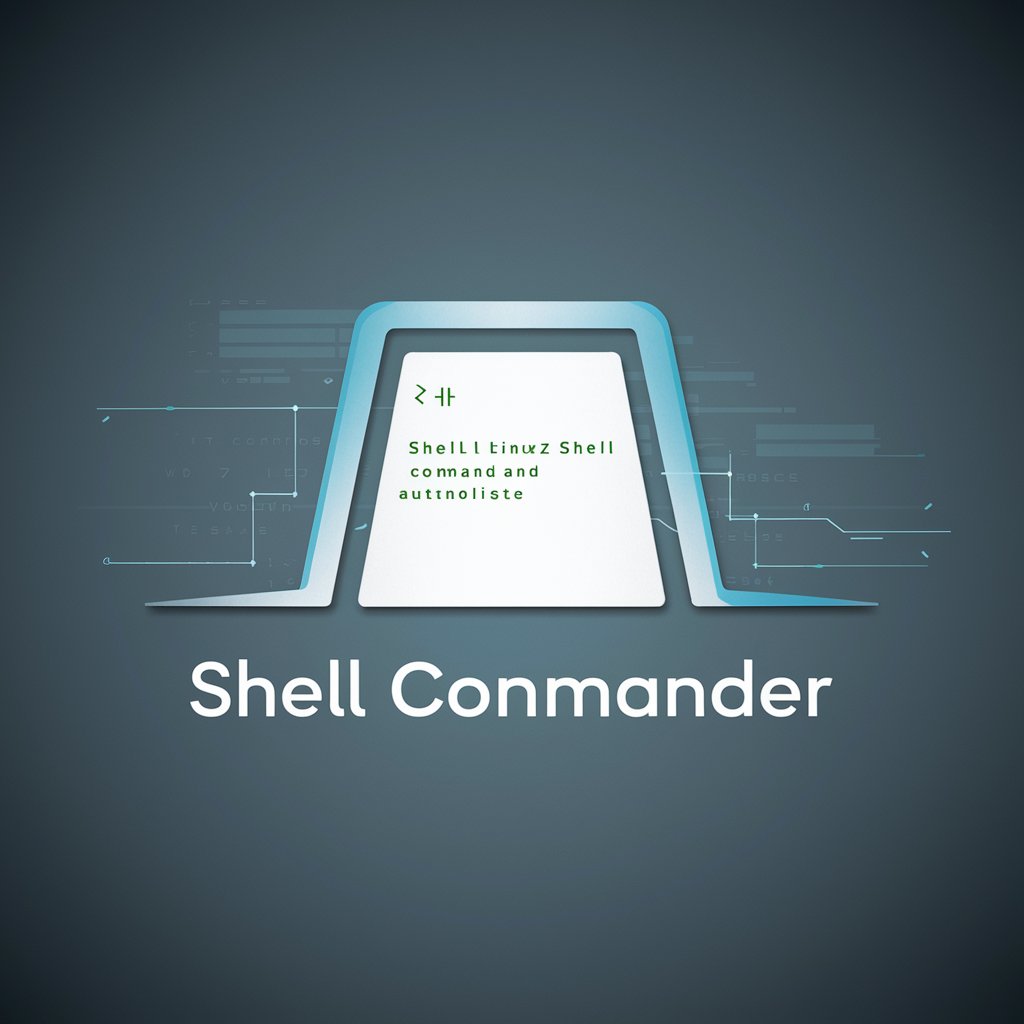
Quick Shell Oneliners - Shell Command Solutions

Ready for instant shell commands? Let's get started.
Streamline Command Line Tasks with AI
Generate a shell command to...
Create a script that...
Write a one-liner to...
Provide a command for...
Get Embed Code
Introduction to Quick Shell Oneliners
Quick Shell Oneliners is designed to provide users with efficient, direct access to shell command solutions. The core purpose of this service is to streamline the process of crafting and utilizing shell commands without the need for extended explanations or tutorials. Users can expect concise, ready-to-use commands that address specific needs or tasks. This tool is ideal for those familiar with command-line interfaces but who require quick references or reminders on how to execute specific tasks. Examples of its utility include generating commands to search for files, manipulate data, and manage system processes, all provided in a straightforward, no-nonsense format. Powered by ChatGPT-4o。

Main Functions of Quick Shell Oneliners
File Searching
Example
find /home/user -type f -name '*.txt'
Scenario
A user needs to quickly locate all text files within a specific directory. This command scans the directory '/home/user' for any files ending in '.txt', providing a comprehensive list of matches.
System Monitoring
Example
top -n 1 | grep 'myprocess'
Scenario
A system administrator wants to check the performance metrics of a specific process named 'myprocess'. Using this command, they can immediately view the process's details within the output of 'top', which displays real-time system performance data.
Batch Renaming
Example
rename 's/\.txt$/.backup/' *.txt
Scenario
A user needs to rename multiple text files by changing their extensions from '.txt' to '.backup'. The command applies a substitution pattern to all files in the current directory ending in '.txt', effectively renaming them to end with '.backup' instead.
Ideal Users of Quick Shell Oneliners
System Administrators
System administrators often face tasks that require rapid, accurate command execution. Quick Shell Oneliners provides them with ready-to-implement shell commands for system monitoring, user management, and server maintenance, saving time and increasing productivity.
Software Developers
Software developers may use shell commands regularly to automate tasks, manage version control, and manipulate files. Quick Shell Oneliners offers a direct route to the necessary commands, facilitating smoother development workflows and quicker debugging processes.
Data Scientists
Data scientists who handle large datasets might need efficient ways to filter, sort, and process data directly from the command line. Quick Shell Oneliners provides commands that can quickly perform complex file manipulations, helping them focus more on analysis and less on data preparation.

How to Use Quick Shell Oneliners
Start for Free
Visit yeschat.ai for a free trial without needing to login, and there's no requirement for ChatGPT Plus.
Understand the Scope
Familiarize yourself with the types of shell commands you can explore, from simple file manipulations to complex scripting solutions.
Identify Your Needs
Determine the specific task or problem you need to solve to effectively utilize the tool in your workflow.
Execute Commands
Use the provided shell commands directly in your terminal. Ensure your system complies with the necessary software prerequisites like Bash or PowerShell.
Review and Optimize
After executing commands, assess the outcomes and adjust the commands if necessary to optimize for your specific use case.
Try other advanced and practical GPTs
CrowdStrike Quick Search GPT
Empowering Cybersecurity with AI

Quick Pic's
Empower Your Creativity with AI

Quick Query
Instant clarity with AI-powered assistance

Quick Define
Unveil Words with AI Precision

Quick Look
Elevate your code with AI-powered insights.

Quick Chef
Craft Culinary Masterpieces with AI

Summarize intersted stocks
Instant AI-powered stock insights.

Student - Cultural and Media Criticism
Powering In-depth Media Criticism

Am I Qualified?
Elevate Your Qualifications with AI

Brunette
Empowering Conversations with AI

Quantum Quandaries
Demystifying Quantum Computing with AI

Talent: IF INTERESTED
Elevate HR with science-backed critical analysis

Frequently Asked Questions About Quick Shell Oneliners
What is Quick Shell Oneliners?
Quick Shell Oneliners is a specialized tool designed to provide immediate shell command solutions for a variety of tasks, enhancing efficiency and simplifying command line operations.
Can I use Quick Shell Oneliners on any operating system?
Yes, Quick Shell Oneliners can be used on any system that supports a command line interface, including Windows, macOS, and Linux, with commands tailored for Bash, PowerShell, or your default shell environment.
How can Quick Shell Oneliners improve my workflow?
By providing direct, efficient shell commands, it helps automate repetitive tasks, troubleshoot system issues, and manage files and processes swiftly, reducing the time spent on manual command line entries.
Are there any prerequisites for using Quick Shell Oneliners?
Yes, a basic understanding of command line operations and the environment (like Bash for Linux/Mac or PowerShell for Windows) is necessary to effectively utilize the commands provided.
Is Quick Shell Oneliners suitable for beginners?
While beneficial for users with basic command line knowledge, Quick Shell Oneliners is highly effective for experienced users seeking to expedite complex tasks or streamline command line operations.





